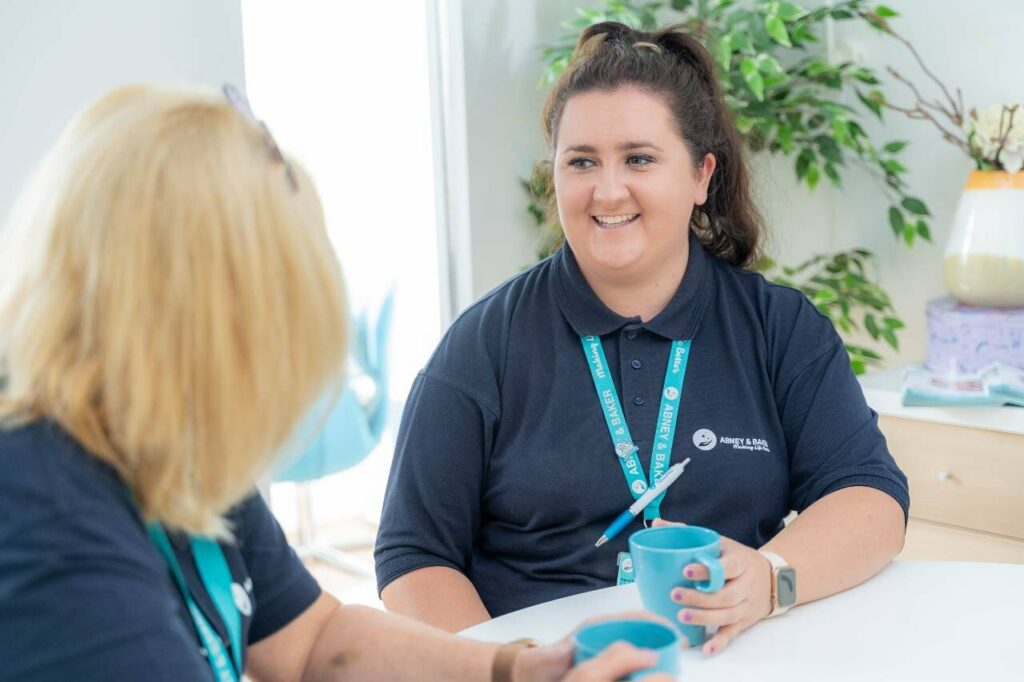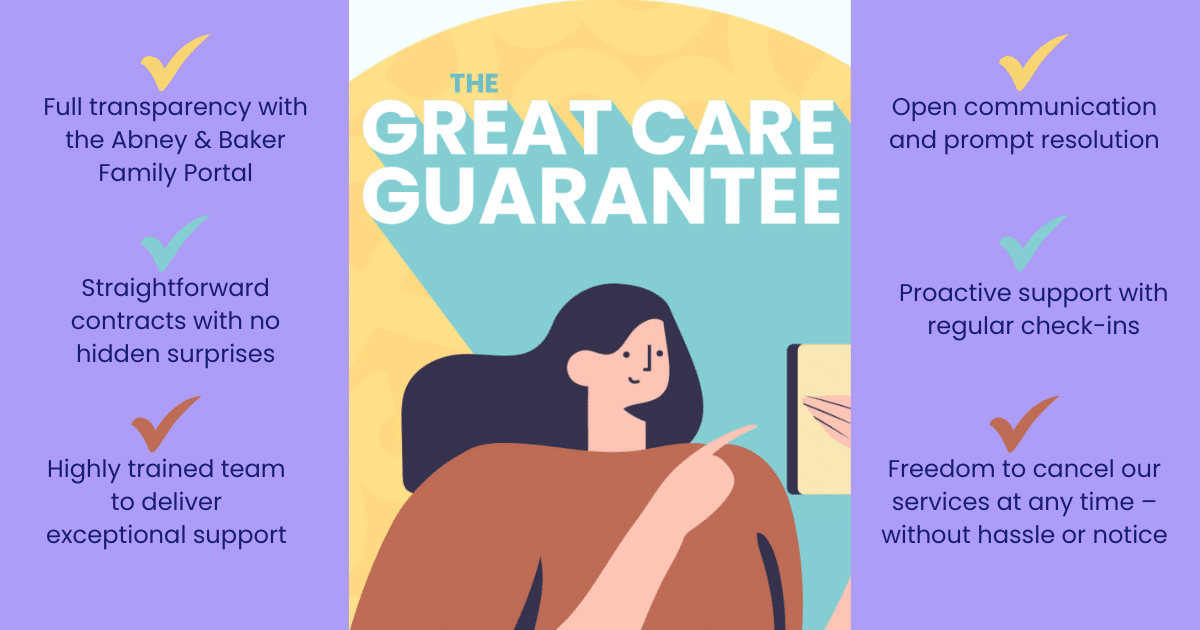Having a hard time searching for the best respite care?
There are plenty of features to consider when choosing respite care. The key is to focus on aspects that ensure your loved one receives excellent care. And, you get peace of mind they’re in good hands.
If you’re looking after your elderly loved one or friend without any extra help it can be tough on your relationship and very exhausting for you.
Juggling work, kids, home life and caring is no mean feat. But that’s where respite care services come in. Our carers are available to give you a break and ensure both of you have the time out you deserve, while still giving your loved one the personal and dignified home care they need and deserve.
Keep reading for valuable tips to help you find the best respite care.
Respite care and your mental health
Everyone needs time to reset. Being a carer for older people can be exhausting, and rewarding, but the strain is real.
Think about taking a break for a few hours to meet friends, join a group or get out for a walk. This valuable time will look after your mental and physical health.

If you are the main carer, you may find you are feeling guilty about time out. Yet the exhaustion and physical deterioration of your loved one as time passes, will be exhausting for you.
The pressure to be strong and hide your feelings from your loved one is also a huge responsibility. To share this responsibility or to talk to someone who understands is all part of what respite care is here for.
Make time for you without feeling the guilt of leaving your loved one alone. In finding a respite care / replacement care provider, this will allow you to switch off for a short while. Remember, a better rested you will help in every direction.
Identify specific respite care needs

Searching online for a company that offers respite care services without any preparation can be daunting. So first you need to identify the specific care requirements the provider must meet.
Creating a checklist that you can use in the assessment meeting later will make things easier to decide on respite service offers. The most common carer help your family member might need are:
- Walking
- Eating
- Bathing
- Exercise
- Mental stimulation
Some respite care providers offer companionship care. This service is helpful for outings or social activities.
Ask family and friends
Respite care is not isolated to residential care homes or care centres only. You can ask friends and family if they’re willing to assist your loved one in gentle daily activities. Such as helping them make some lunch or doing some gardening. If you can find someone you know and your loved one is familiar with this can be a good way to start to introduce other friendly faces.

This is an excellent option in the short term, while you continue to search for a trained professional. It gently introduces your loved one to care and support from someone else. There’s also less pressure on your part, since you’re not pressed for time to find the right caregiver.
What if you don’t have that support available? Letting family and friends know about the situation can expand your search further. They might know someone who has experience with the right respite care help you are looking for. Recommendations and reviews are always a great place to start your search.
Decide on the type of respite care
The type of respite care and support you choose will depend on the specific needs of you and your loved one. But there are a range of services available.
It’s time to match your needs with a definite type of care that can help narrow down your search. Respite care usually falls within two categories: in-home and out-of-home.
In-home services are more popular because most people prefer this method. They don’t have to settle in a new environment because they can receive care and support in their own home. It can also give you the freedom to check on them anytime. This can include personal care, doing light house work, making meals, assisting with medication and much more.

That said, out-of-home service can also be great if your loved one wants a change of scenery. A respite break may also suit if they find staying at home lonely or a bit repetitive. There are lots of places our carers can take your loved one to such as the garden centre, coffee shop and adult daycare centres to name but a few. Adult daycare centres usually have a planned set of activities for the older generation.
These regular care and support programs ensure everyone always has fun and has a good quality of life. Your loved one will receive the super care service they deserve.
The features of respite care
When researching in-home services, check if they can help with personal care, like bathing and dressing. Plus check if they assist during meals and taking medications. As all these things will help take the pressure off of you and put your mind at rest that your loved one is receiving a consistent level of care and support even when you’re not there.

In-home respite break care plans can also help with laundry, making beds, and preparing meals. We work with you and your loved one to ensure you get the best respite day care needed with our carer assessment visit where we explore exactly what support you both need and when. Remember we’re not here to completely replace the fantastic work you’re doing, just to lend an extra helping hand.
Activities we can support with are varied including baking, gardening and hobbies or your loved one may fancy giving something new a go? Research shows that staying mentally and physically active keeps dementia and Alzheimer’s at bay.
A respite carer may offer support in visiting an adult daycare centre. Some of these programs focus on social interactions, helping your loved one stay sharp and continue to enjoy life.
Consider the cost
Choosing a caregiving care service you can afford is crucial. You don’t have to cut back on this, but you don’t have to go all out as well.
You need to strike a perfect balance. Find the one that can provide comfort and care for your aged loved one without breaking the bank.
The expense of a residential care home facility depends on the area’s cost of living and the level of care provided. A person living with dementia needs a higher level of support full time. This is the reason nursing homes are so expensive.
Don’t pay for unnecessary services. If your loved one is still independent in their daily activities and happy at home, you don’t need to pay extra.
In-home care agencies offer the flexibility to accommodate this. They usually go by short stay timescales, like hourly, daily, overnight rates, and can often offer temporary arrangements. The cost will also vary depending on the specific care and support services they provide whilst with your loved one.
Narrow the list with a phone call

Respite care services usually provide a printed brochure or leaflet, or a downloadable version that you can share with your loved one. You can call and talk to them to discuss your needs.
The care company will then arrange an assessment visit. This is where they will meet your loved one and chat to you both about the situation and what care and support they can provide.
Choose a reputable provider based on their customer testimonials and experiences.
Find the best respite care with these tips
Your loved one deserves the best care, even when you need a short break. These tips will help you find the best respite care from homecare agencies more easily. They will make your search more efficient and less stressful, giving you peace of mind.
Still, not sure where to start? That’s where we come in. Reach out to us, and we’ll help you with the respite care your loved one deserves.
Helping your loved one to continue living independently and confidently in their own home.
By providing a range of support at home, we’re helping many clients across Bath & North East Somerset and West Wiltshire retain their independence and stay in control in the comfort of their own homes.
Remember we’re always here if you want to chat about your care options. Just get in touch:
Call 0333 043 4880 – Email enquiries@abneyandbaker.com – Book a call here














